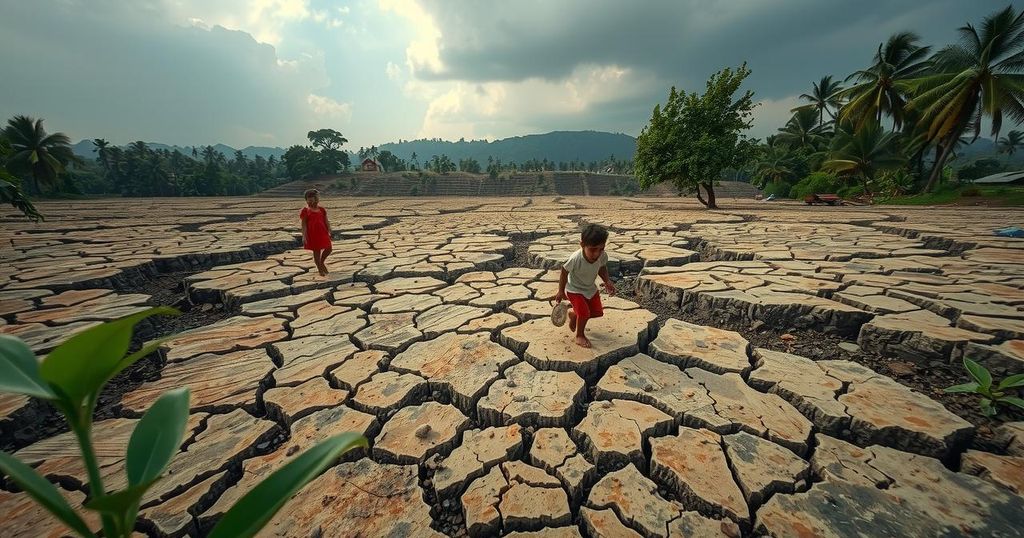Over 420,000 children in the Amazon basin are facing severe drought and water scarcity, prompting UNICEF to call for increased climate financing ahead of COP29. The situation, worsened by the El Nino phenomenon, has led to school and clinic closures while increasing risks of malnutrition and disease. Both Brazil and Colombia report significant deforestation reductions, suggesting a potential for improved environmental policies amidst growing challenges.
The United Nations has reported that over 420,000 children in the Amazon basin are experiencing severe water scarcity due to an unprecedented drought affecting Brazil, Colombia, and Peru. This environmental crisis, which has persisted since last year, has adversely impacted Indigenous communities and others reliant on river navigation, resulting in significant disruptions to food access, healthcare, and education. Ahead of the COP29 climate summit in Azerbaijan, UNICEF Chief Catherine Russell has called for increased climate financing to mitigate these urgent challenges, which include rising child malnutrition and disease risks. The ongoing drought, exacerbated by the El Nino climate phenomenon, has led to closing over 1,700 schools and 760 medical facilities in Brazil alone due to low river levels. In Colombia, the situation is similar, with 130 schools suspending classes due to a lack of water and food. UNICEF has urgently requested $10 million to assist these vulnerable communities by supplying vital resources and health services. Experts have noted that this sustained environmental crisis is not solely due to natural phenomena but is also linked to the broader climate crisis. Despite facing substantial environmental setbacks, Brazil’s Environment Minister Marina Silva expressed optimism about governments’ abilities to confront climate change, as evidenced by a reported 30 percent decrease in deforestation rates. Notable reductions in deforestation were also reported in Colombia, underscoring emerging efforts to protect valuable ecosystems in the region. These developments highlight both the challenges and the potential for collaborative action in addressing climate-related crises.
The current drought in the Amazon, described as record-breaking, is contributing to significant humanitarian issues, particularly for children in vulnerable communities. Water scarcity has led to wide-reaching consequences, including food insecurity and healthcare access, prompting calls for urgent climate action. As the region experiences extreme environmental stress from both natural and anthropogenic factors, the implications for child health and community resilience have become a pressing concern for organizations like UNICEF, which is advocating for increased climate financing to safeguard future generations.
In summary, the severe drought in the Amazon basin presents critical risks to over 420,000 children across Brazil, Colombia, and Peru, leading to food shortages and healthcare access challenges. The UN has urged leaders at COP29 to boost climate financing to address these urgent needs. Continued environmental monitoring and proactive government policies are essential for reversing the detrimental trends contributing to this crisis, ensuring the protection of vulnerable populations now and in the future.
Original Source: www.aljazeera.com






